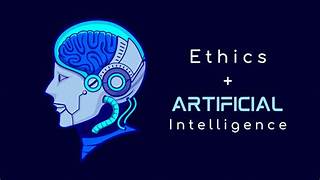The Ethical Implications of AI in Brain-Computer Interfaces
Brain-Computer Interfaces (BCIs) represent the convergence of neuroscience, engineering, and artificial intelligence (AI). These revolutionary technologies enable direct communication between the brain and external devices, offering immense potential for medical advancements, enhancing human capabilities, and reshaping our understanding of cognition. However, as with any groundbreaking innovation, the deployment of AI-driven BCIs raises profound ethical questions. Addressing these implications is crucial to ensure the responsible development and use of this technology.
1. Privacy Concerns and Data Security
BCIs rely on accessing and interpreting neural data, which is inherently personal and sensitive. Unlike other forms of data, neural signals provide insights into thoughts, intentions, and emotions—information that individuals may wish to keep private.
Key Concerns:
- Unauthorized Access: Hackers or malicious actors could exploit vulnerabilities in BCI systems to access neural data, compromising users’ privacy.
- Data Ownership: Questions arise over who owns the neural data collected by BCIs: the individual, the company developing the interface, or a third party?
- Surveillance Risks: Governments or corporations could misuse BCIs for surveillance purposes, monitoring individuals’ thoughts and actions.
Addressing these concerns requires robust cybersecurity measures, transparent data policies, and clear legal frameworks to protect users’ rights.
2. Informed Consent and Autonomy
Informed consent is a cornerstone of ethical practices in technology and medicine. With BCIs, ensuring that users fully understand the potential risks and implications is particularly challenging due to the complexity of the technology.
Key Concerns:
- Comprehension: The technical nature of BCIs may make it difficult for users to grasp the full scope of how their neural data will be used.
- Coercion: Individuals in vulnerable positions, such as patients with severe disabilities, may feel pressured to adopt BCIs as their only option for treatment or communication.
- Autonomy: The use of AI in BCIs to predict or influence user behavior could undermine individual autonomy by subtly shaping decisions or actions.
To address these issues, developers must prioritize user education and ensure that participation in BCI use is entirely voluntary and free from undue influence.
3. Bias in AI Algorithms
AI systems rely on training data to function effectively. If the data used to develop BCIs is biased, the technology could produce skewed results, exacerbating existing inequalities.
Key Concerns:
- Underrepresentation: If neural data from diverse populations is not included during training, BCIs may work less effectively for certain groups.
- Discrimination: Biases in AI could lead to differential treatment or outcomes based on factors such as race, gender, or socioeconomic status.
Developers must strive for inclusivity in data collection and employ techniques to identify and mitigate bias in AI algorithms.
4. Psychological and Social Impacts
BCIs have the potential to profoundly affect users’ mental and emotional well-being, as well as societal norms.
Key Concerns:
- Identity and Self-Perception: The integration of AI with the human brain could alter individuals’ sense of identity, especially if thoughts or actions are influenced by external systems.
- Dependency: Users may become overly reliant on BCIs, potentially leading to a loss of confidence in their natural cognitive abilities.
- Social Division: Access to advanced BCI technologies may be limited to those who can afford them, creating a divide between “enhanced” and “non-enhanced” individuals.
Addressing these impacts requires careful consideration of the psychological effects of BCI use and policies to ensure equitable access to the technology.
5. Dual-Use Concerns
BCIs can be used for both beneficial and harmful purposes, raising ethical dilemmas about their deployment and regulation.
Key Concerns:
- Military Applications: BCIs could be weaponized to enhance soldiers’ capabilities, raising questions about the ethics of using such technology in warfare.
- Malicious Use: Criminals or terrorists could exploit BCIs to manipulate individuals or disrupt systems.
Establishing clear guidelines and international agreements on the use of BCIs is essential to prevent misuse.
6. Human Enhancement and Ethical Boundaries
Beyond medical applications, BCIs offer possibilities for human enhancement, such as improving memory, learning capabilities, or physical performance. While exciting, these applications raise profound ethical questions.
Key Concerns:
- Equity: Enhanced individuals may gain unfair advantages in education, employment, or other areas, exacerbating social inequalities.
- Naturalness: Some argue that enhancing human capabilities through technology challenges notions of what it means to be human.
- Consent for Minors: If BCIs are used for enhancement, ethical dilemmas arise about whether children can consent to such interventions.
Society must engage in ongoing dialogue to define the ethical boundaries of human enhancement through BCIs.
7. Accountability and Liability
When AI systems make decisions or errors in BCI applications, determining accountability can be challenging.
Key Concerns:
- System Failures: If a BCI malfunctions or produces harmful outcomes, who is responsible—the developer, the user, or another party?
- AI Autonomy: As AI systems become more autonomous, ensuring transparency in decision-making processes is crucial to assigning accountability.
Developers and policymakers must establish clear accountability frameworks to address these challenges.
8. Regulatory and Ethical Frameworks
Given the profound implications of AI-driven BCIs, robust regulatory and ethical frameworks are essential to guide their development and use.
Recommendations:
- International Collaboration: Governments, researchers, and organizations must collaborate to establish global standards for BCI development and deployment.
- Ethical Review Boards: Independent boards should oversee BCI research and applications to ensure ethical compliance.
- Public Engagement: Involving the public in discussions about BCI ethics can help align technological development with societal values.
9. Conclusion
The integration of AI in brain-computer interfaces holds the promise of transforming medicine, communication, and human capabilities. However, these advancements come with significant ethical implications that cannot be ignored. By addressing concerns around privacy, bias, psychological impact, and accountability, we can pave the way for responsible BCI development. Through transparent policies, inclusive practices, and ongoing dialogue, society can harness the benefits of AI-driven BCIs while safeguarding human dignity and autonomy.


